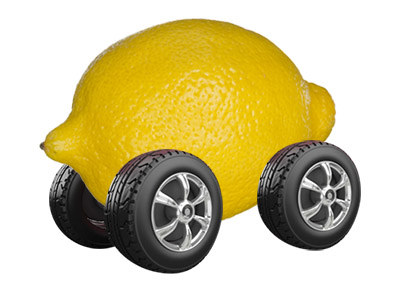
Electric vehicles are catching the eye of some consumers, but are Americans ready to end their love affair with big cars, SUVs and pickup trucks? Are they going to invest in environmentally-friendly alternatives offered by Tesla, Toyota, Chevrolet and General Motors among others?
Politicians see EVs as a solution to climate change, but these vehicles still have a lot to prove on the road.
Some of the main issues facing battery electric vehicles are limited driving range, high cost, battery problems, reliability, functional safety and spotty charging infrastructure. There are also issues involving various power semiconductors and other devices.
Hybrid vehicles are often the best choice for consumers considering an investment in an electric vehicle, that is until there is significant infrastructure to support a fully electric vehicle. In 2020, these all-electric vehicles are still a niche market. Most people are just not ready to go full throttle into an EV.
Extinction of Gas Guzzlers
Still, drivers of gas-powered vehicles are scheduled to eventually become extinct in the next two decades on California freeways? Under a new proposal by California Gov. Gavin Newsom to eliminate “climate change-causing fossil fuels,” consumers may have few choices in the future.
Indeed, Newsom announced in September the state’s plan to reduce greenhouse gas emissions, Newsom pledged to ban sales of new gasoline-powered vehicles by 2035. The state is the first America to propose such a ban, but other countries such as France and Germany have made similar pledges.
“We want to accelerate a trend you’re seeing all around the rest of the world,” Newsom said on NPR’s All Things Considered.
While the executive order does not prevent Californians from owning or selling gasoline or diesel-powered vehicles on the used-vehicle market, dealerships would only be permitted to sell new electric vehicles.
Fire Risk, Chevrolet Bolt Recall
It’s certainly a lofty goal, but are California consumers ready for electric-only vehicles in just 15 years?
Just this week, General Motors Co. issued a worldwide recall for 68, 677 electric cars that pose a fire risk. Some 50,932 of those vehicles are here in the U.S.
GM reports two people were hurt and five fires were reportedly caused by defective batteries used in the Chevrolet Bolt (2017 to 2019). The recall stated that if the vehicle is near fully charged or fully charged it could catch fire. To mitigate the risk of fire, GMC has developed software that will limit the vehicle’s ability to charge the batteries more than 90 percent until a final repair plan can be made. Meanwhile, owners of the Bolt are being asked to park outdoors and away from structures until final repairs can be made.
The recall of 2017 to 2019 model year Chevrolet Bolt EVs are built with high voltage batteries that were produced at a South Korean plane of LG Chem Ltd. In Ochang. The National Highway Traffic Safety Administration (NHTSA) is investigating.
Hyundai Batteries Pose Fire Risk
An earlier recall by Hyundai Motor Co. in October 2020, also involved battery cells manufactured by LG Chem. These batteries, however, were made in the company’s Nanjing, China factory. The battery cells had possible defects that had a higher risk of either a short circuit or fire. The Hyundai recall was for 77,000 Kona EVs worldwide.
Tesla Leads Electric Vehicle Market Share/Sales
Meanwhile, Tesla has been a market leader in California, but even this coveted electric vehicle has profitability issues and technology mishaps.
The company, headed by Elon Musk, manufactured roughly 365,300 vehicles between January and December 2019. Sales was mostly for the Model 3 which accounted for about 300,000 units. Additionally, the Model 3 was the world’s best-selling plug-in electric vehicle in 2019. This year, in 2020, despite the impact of Covid-19 pandemic, the company has delivered 329,980 through the third quarter.
Worldwide EV Production on Rise
So far, worldwide production of battery-electric cars is expected was roughly at 2 million vehicles in 2019, up from 1.39 million vehicles built in 2018, according to IHS Markit. Projected 2020 sales are
By 2030, it’s expected that roughly 30 percent of all cars made will be electric, according to the International Energy Agency. Last year, electric vehicles accounted for between 1 and 3 percent of all passenger vehicles worldwide.
FREE CONSULTATION 855-703-4186

Motorists who are grappling with ongoing problems with their electric vehicle (EV) or other vehicle, could be eligible for compensation under California and or Federal Lemon Laws.
Johnson Attorneys Group is dedicated to helping people and has served thousands of clients over the years. We handle both lemon law and personal injury cases. We helped our clients resolve their cases and we can help you.
Call us for a FREE CONSULTATION at 855-703-4186. In lemon law cases, our attorneys fees do not come out of your settlement because the manufacturer is required to pay them directly to us under California Lemon Laws. However, for personal injury claims, our fees are paid only if we obtain a settlement for you.
- BMW Recall 1.5 Million Vehicles Due to Braking System Issue - October 7, 2024
- 2024 Land Rover Discovery, Range Rover Recall Major Engine Fire Risk - September 6, 2024
- Tesla is recalling 9,136 Model X SUVs to Replace Roof Trim - August 23, 2024
